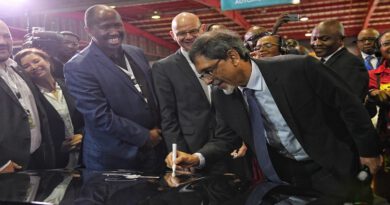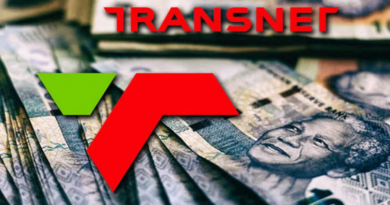Why politics is holding SA back from the rest of the globe
History has shown that trade, economic growth and countries that are part of the world market economy tends to do better, have periods of peace and prosperity for their people. However, history is also complex, not linear and has also shown there are many exceptions to this general statement. We should be interested in the trends/changes in the global economy. The workforce/labour of the future will be supplied by world market not countries. As companies become multinationals in the world market, the skills and labour they require is not going to come from countries where they have operations, but from the rest of the world. Therefore, countries that are able to adapt will do well.
Throughout this year, I’ve consistently argued against the obstructionist role of politics in the country’s economic progression that’s drags South Africa into the abyss.
It may be that the expansion of globalisation is inevitable, however irrationalism seems to have a stronghold on leaders and the whole political spectrum. For example, what rational economic reason can explain why a government with a rising debt and widening fiscal deficit, continues to hold on to SOEs that have billions in debt and have to be repeatedly bailed out? Zero/Nada/Geen/Fokol! There is, however, a political reason. Keeping SOEs serves vested interest and determining if, how, when they get sold or are privatised and who they are sold to is a big political leverage.
The above assertion is an example on how politics is /are the problem since they’re a vehicle on which leaders will use their offices to secure their personal financial future. In this case, concentration of political power produces public policies that enable the use of public funds to sustain up failing government projects that are advocated as essential for development. The global economy reveals how countries that rely and presume state owned/supported companies are key drivers of development and economic transformation, underperform when compared to those that don’t.
As economic globalisation expands due to increasing trade and investment, the proliferation of capital flows, advancing technologies, and a flexible workforce that’s able to move in and out countries/economies, the global economy leans towards global markets and not national ones as key drivers of future reimagined capitalism. It is expected that in the future the world market will be supplier of skills and labour to companies and industries.
For example, some multinational computer technology companies often have their technical support services operating out of India. The banking, IT, and telecommunications industries are among those that have taken advantage of skills and labour availed by the growth of global markets. Once this trend becomes a norm, companies that are able to, will eventually becoming multinational if they want to tap into the pool of human capital that’s availed by the world market.
Yet, whilst these linkages are becoming more visible elsewhere and continue to multiply, here at home, domestic politics have remained largely inward looking and rooted in national agenda. There’s nothing wrong with focusing on domestic issues, however keeping up with changes in the global economy is equally important. Ignoring the latter can have far-reaching implications and impact for South Africa.
First, and since economic globalisation drive trade and investment trends, economies that are burdened by debt including indebted SOEs are not going to attract capital flows that is occurring in world market. The recent selling off of South African bonds indicates to what is to come. Therefore, economic policies that are not agile and held back by politics and public policy that is somehow ignoring the economic interconnectedness of the world. Many South Africans would rather have policies that encourage and kickstart growth of prosperity in the country than politics that divide us.
Secondly, the people and economy no longer have the luxury of another ten or twenty more years to see if the NDP and whatever plan is in place for SOEs will work or produced positive outcomes. The consequences of wait and see or being wrong are too great to ignore. In other words, time is not on South Africa’s side, the multinational companies are not going to wait for us to “get it right”, they will move on. Furthermore, those that are here, will soon look for an exit because of the rising political risks of operating in the country.
Thirdly, the shift in global economy brought along with it a shift in global politics that have given rise to populist, nationalist, protectionist and at times impractical ideas by various political leaders. The Zuma administration embodied socialist economic model against the global tide of mixed economy. The propping up of SOE, the black industrialisation project, the radical economic transformation slogans, what have they yielded for the economy or ordinary citizen?
South Africa is at a crossroad. The test facing the country and its economy are both external and internal. They include shift in the global economy that favours world market instead of national markets, deepening globalisation, the hindering effects of domestic politics on the economy, rising inequality and poverty, political agenda that divisive and the shocking failure of leaders to understand the realities of a rapidly changing world.
Politics are South Africa’s serious threat because in the process, it has enabled politicians/leaders to reduce a country potentially so full of promise, into a crisis.
Source: moneyweb.co.za


